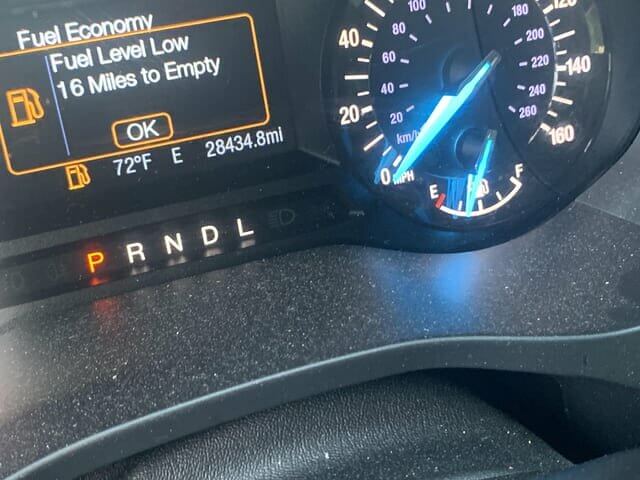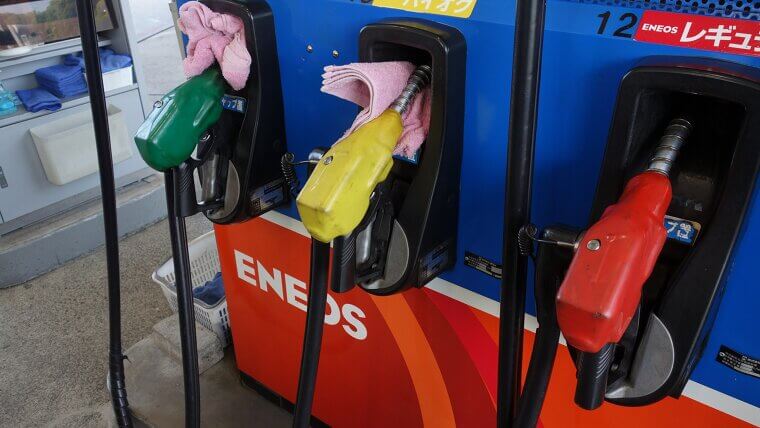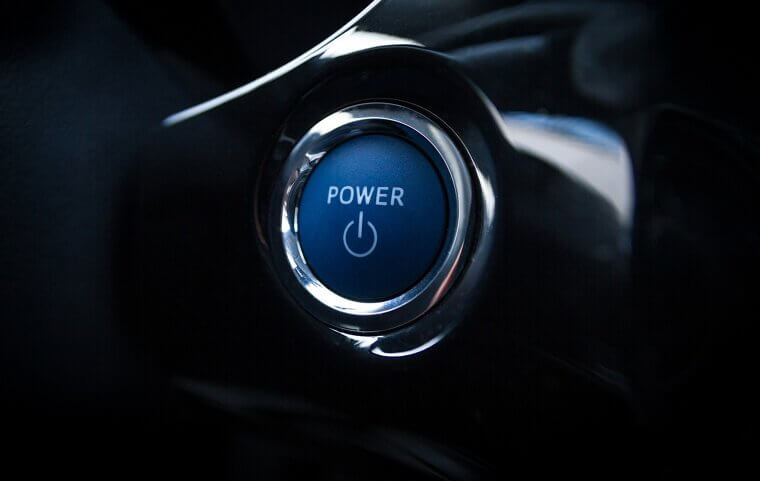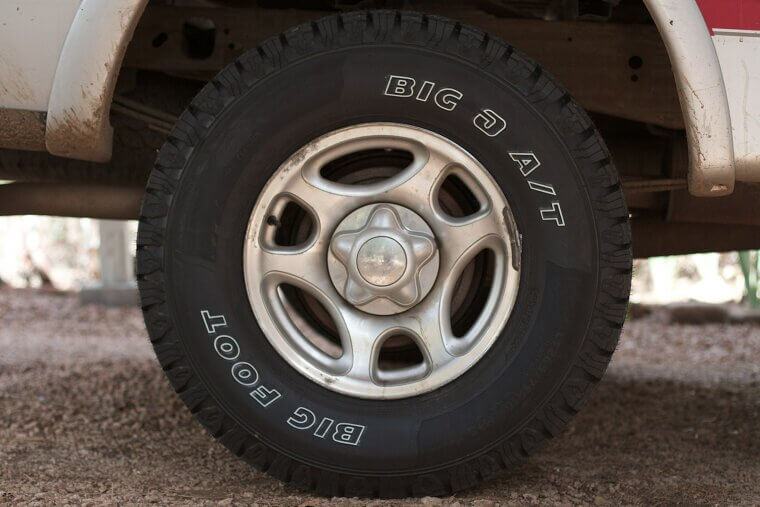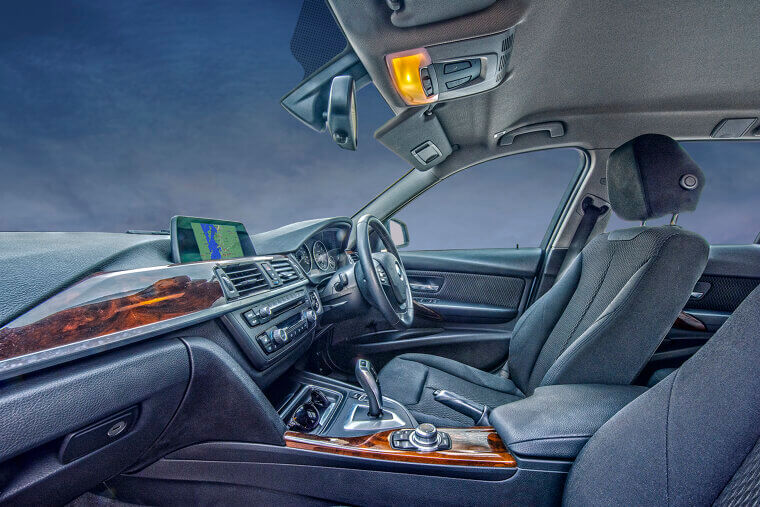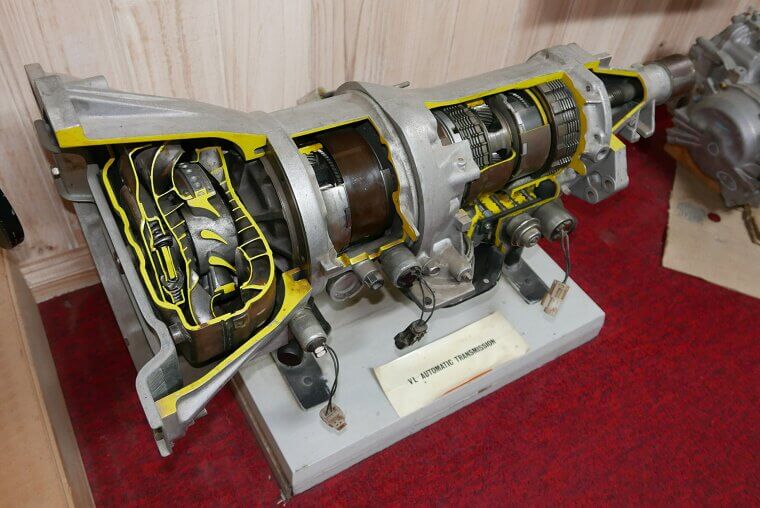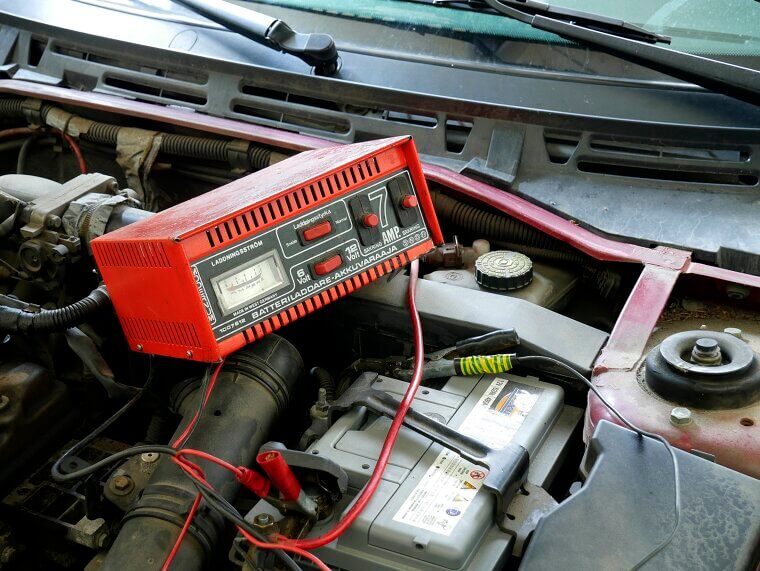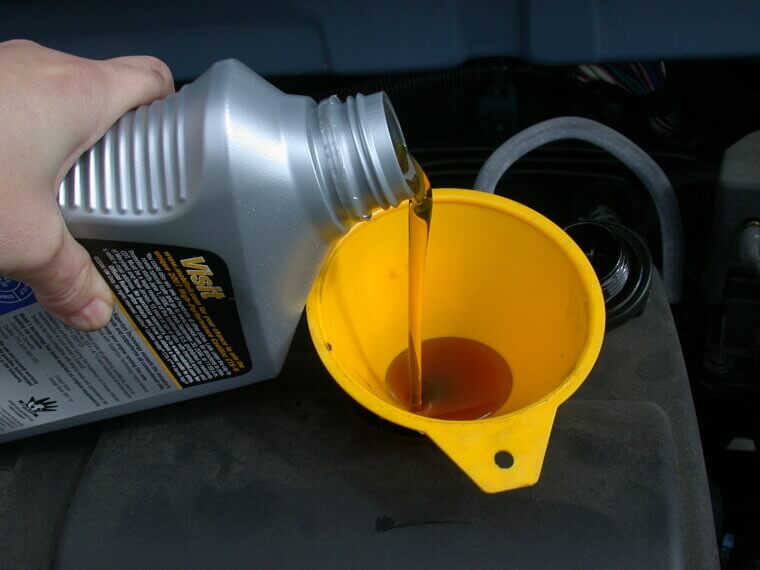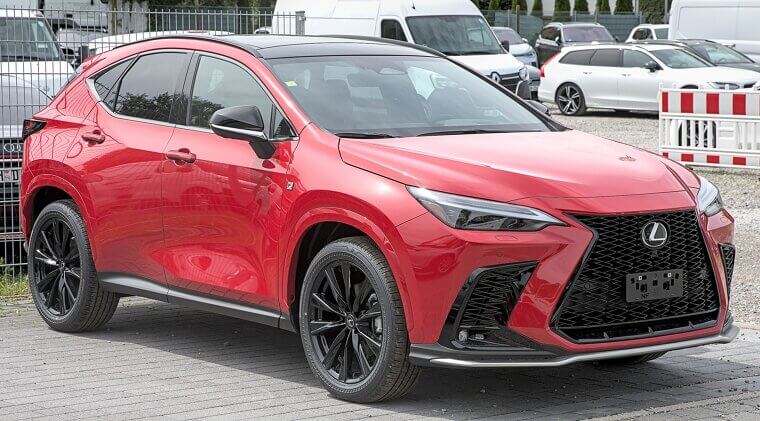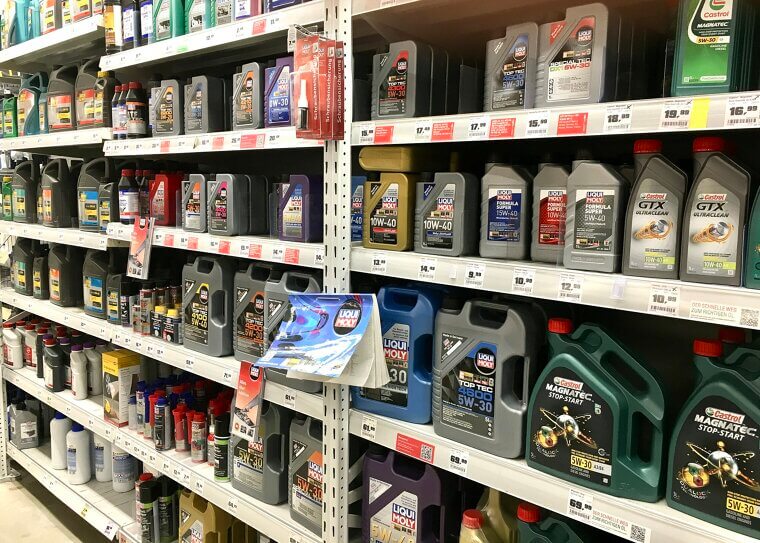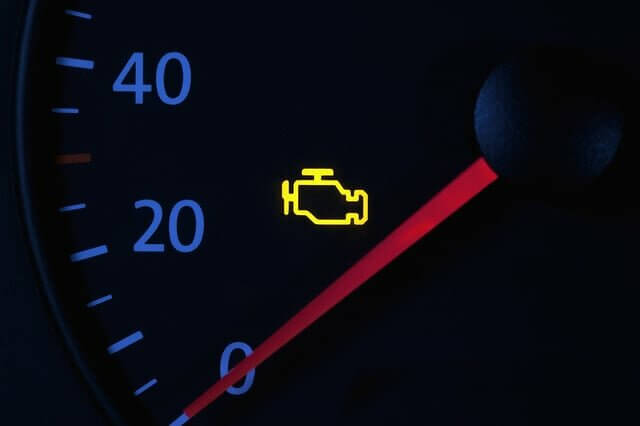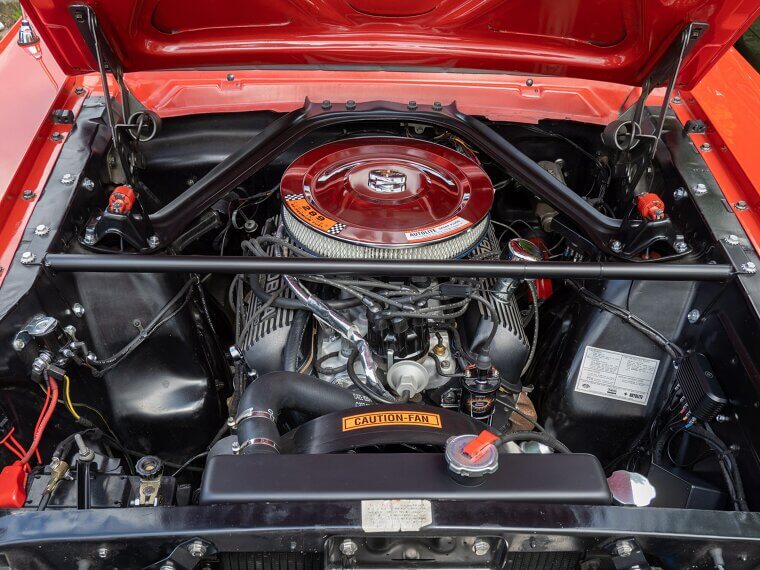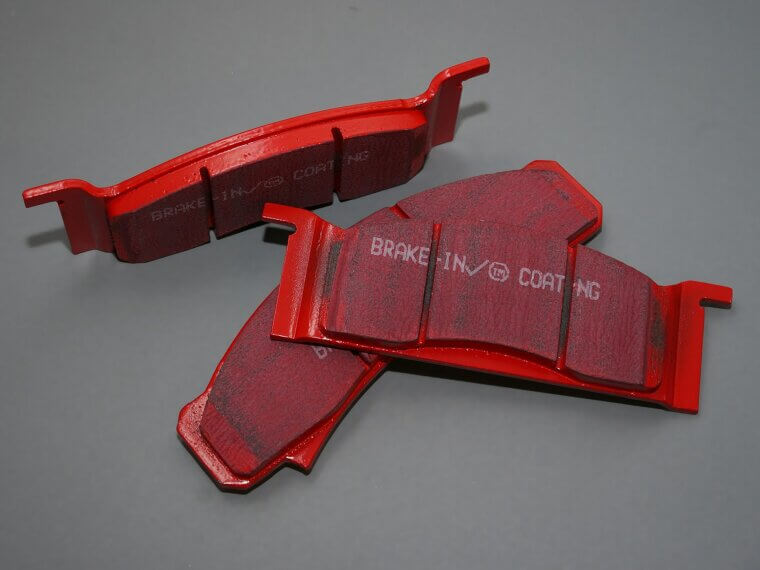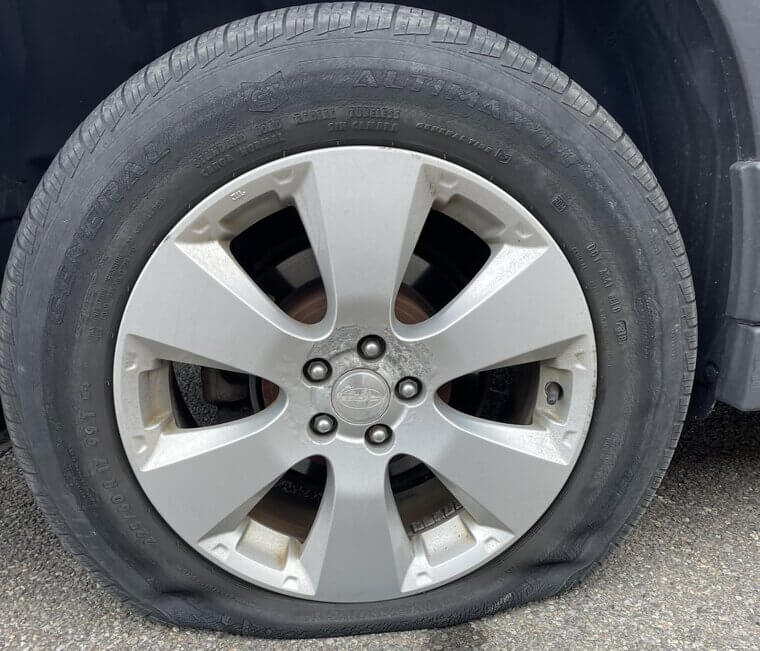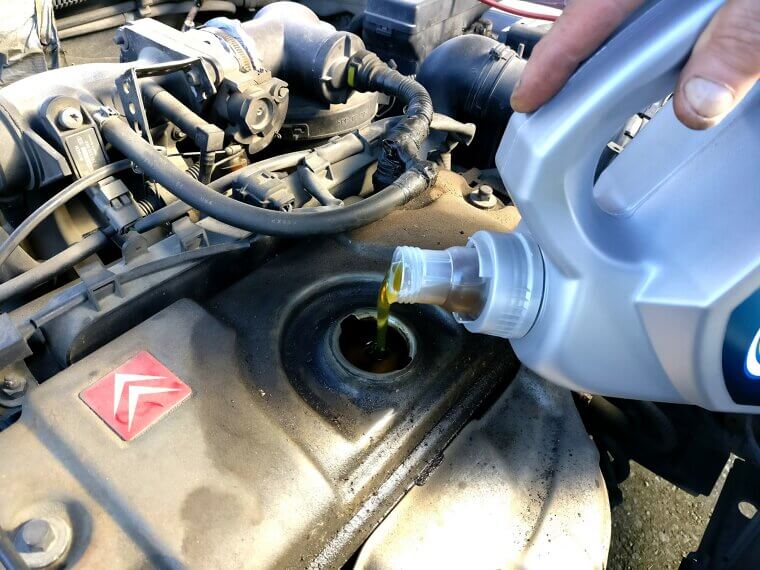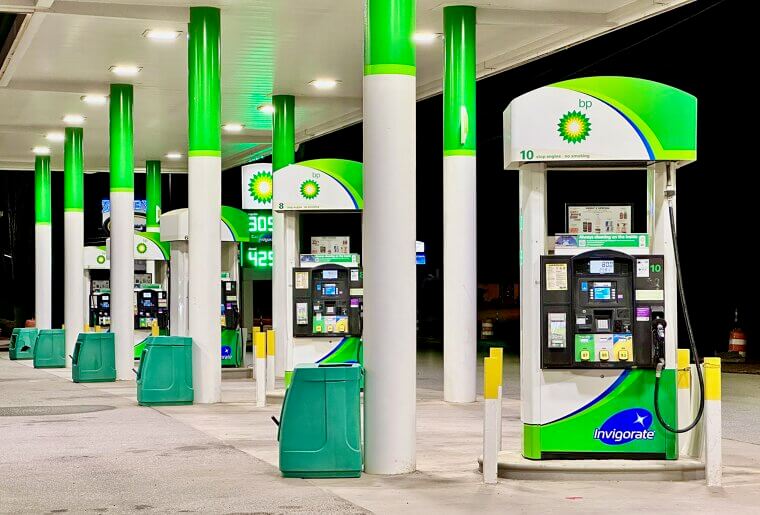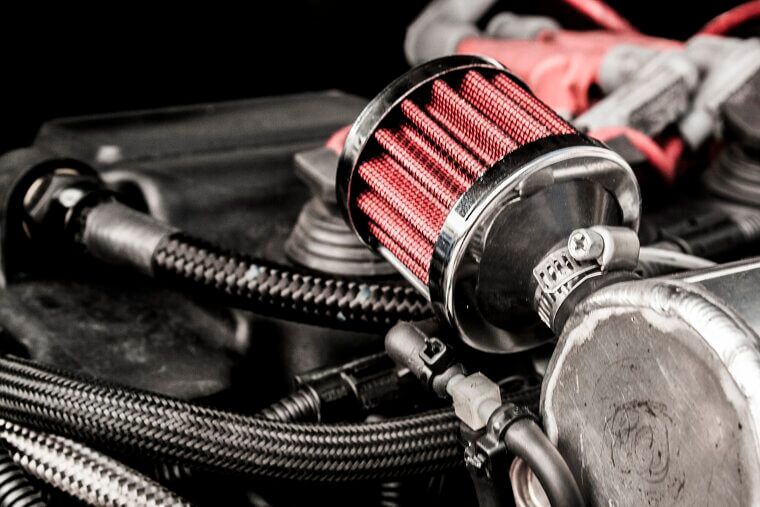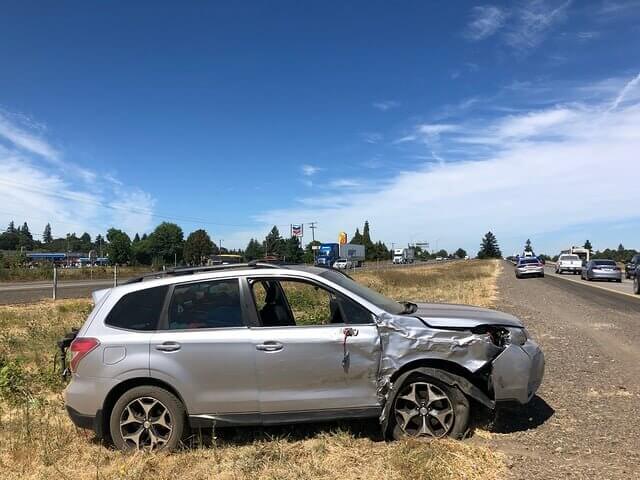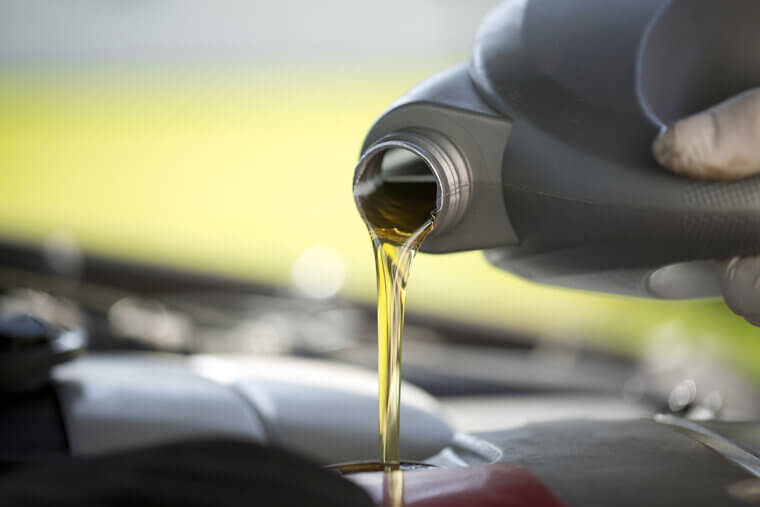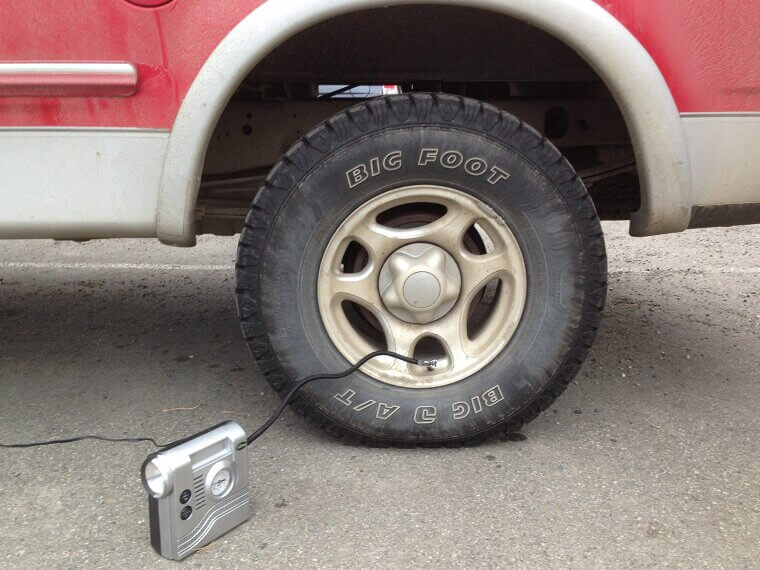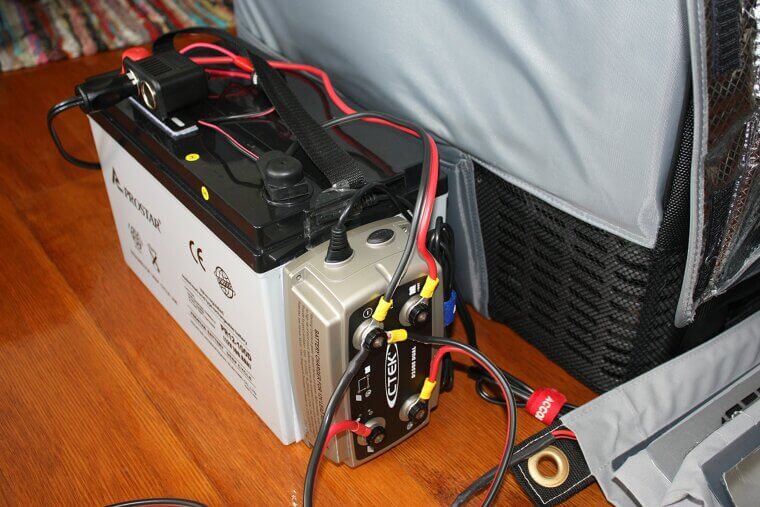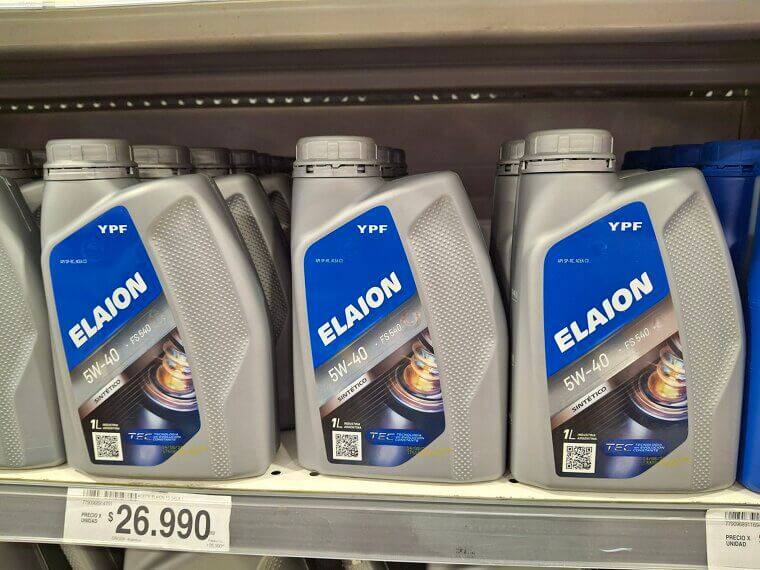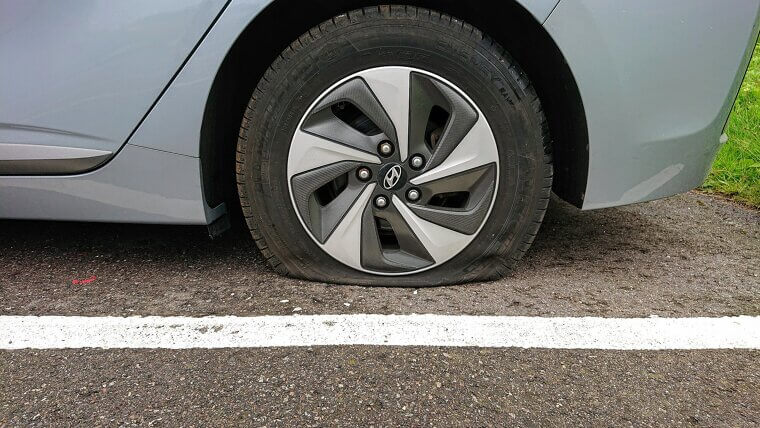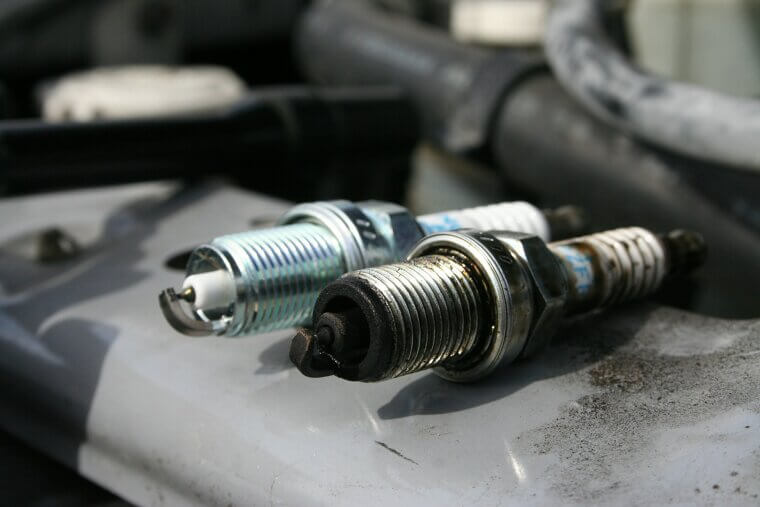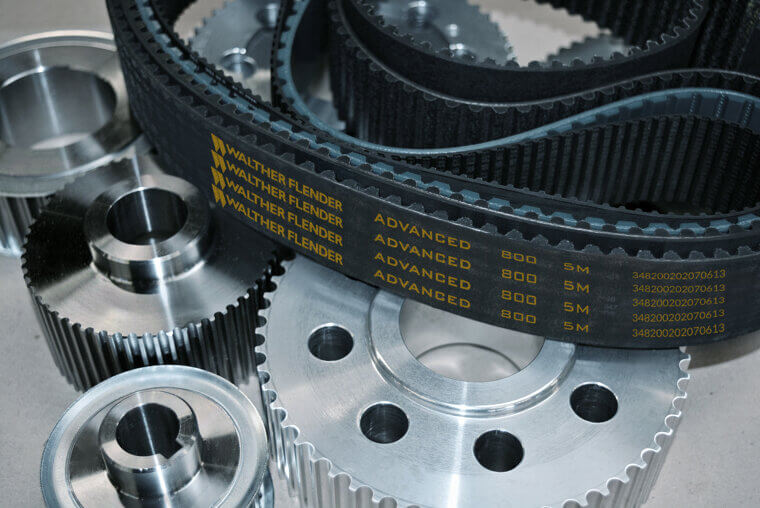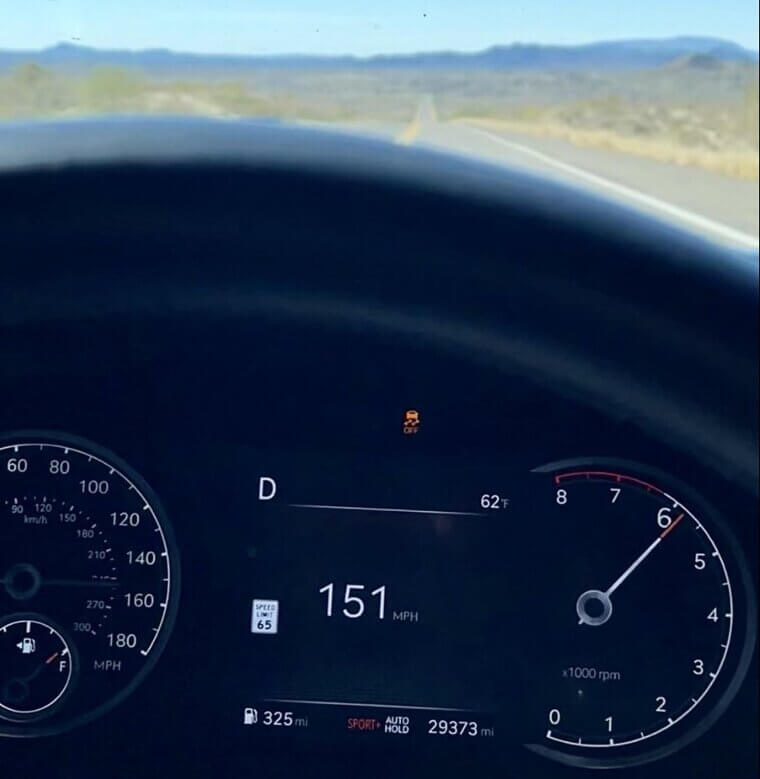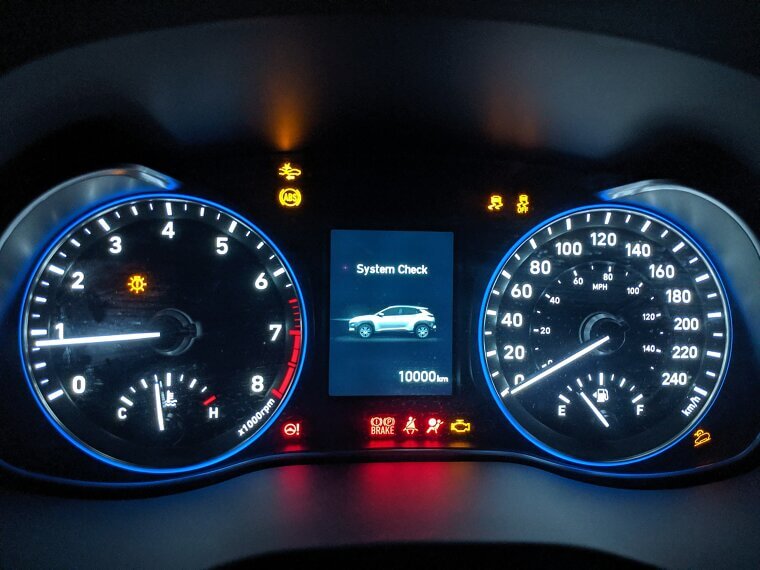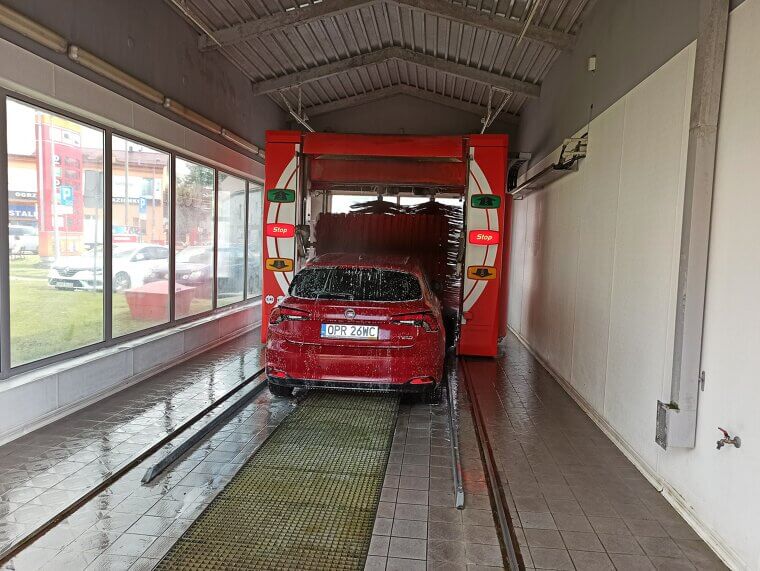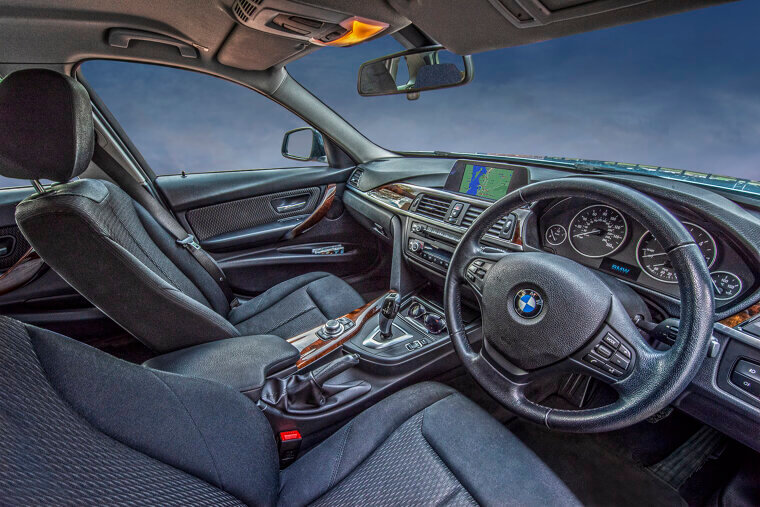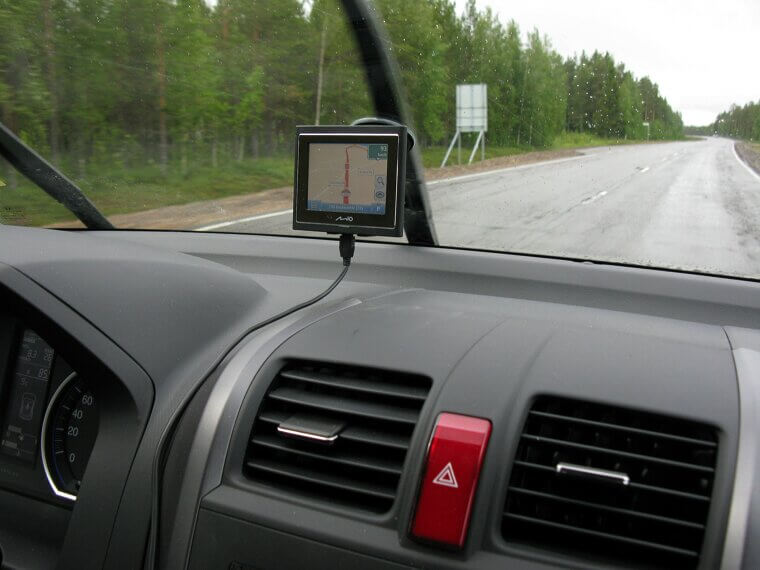The Car’s Fuel Gauge Is 100% Accurate
That little needle might look reassuring, but your fuel gauge isn’t always spot on. Fuel gauges can fluctuate based on inclination, temperature, and even the amount of gas in the tank. If you’re running low, don’t trust the gauge too much. Better safe than sorry. It’s wise to fill up early rather than risk running on fumes.
Mechanics often warn that gauges are designed to estimate, not measure precisely, and factors like sensor wear or electrical issues can throw them off.
Premium Fuel Makes Your Car Run Better
Sure, premium fuel sounds fancy, but unless your car’s engine specifically requires it, regular unleaded will do just fine. Don't let the “premium” label fool you. Studies show most vehicles won’t see any performance boost from premium fuel, and you’ll save a few bucks at the pump! Mechanics often explain that premium gas is formulated for high-compression engines, not average cars.
Using it unnecessarily won’t clean your engine or extend its life — it just drains your wallet without delivering real benefits.
Idling Wastes Less Gas Than Restarting Your Engine
Think leaving your car running while waiting saves gas? Think again. Modern engines are designed to burn less fuel when you restart than when you’re idling. So, if you’re stuck waiting for more than 10 seconds, just turn the engine off. Your wallet will thank you! Plus, unnecessary idling adds extra wear on engine components and increases emissions, which isn’t great for the environment.
Mechanics stress that shutting off the engine is both eco-friendly and cost-effective, especially during long waits or stops.
You Need to Warm Up Your Car Before Driving in Winter
Gone are the days of needing to warm up your car for minutes in freezing weather. Thanks to modern fuel injection systems, engines warm up faster while you’re driving. In fact, idling can actually cause unnecessary wear and tear. Start your car, then hit the road! Mechanics point out that prolonged idling wastes fuel and can lead to carbon buildup in the engine.
Light driving after a cold start helps distribute oil efficiently, protecting engine parts and getting your cabin warm sooner.
Bigger Tires Improve Your Car’s Performance
Bigger tires might look cool, but they can mess with your car’s handling and fuel efficiency. Larger tires create more rolling resistance, making your engine work harder. They can also throw off your speedometer and odometer readings, leading to inaccurate mileage stats. Stick to the size your car recommends! Mechanics also warn that oversized tires may put extra strain on your suspension, brakes, and transmission over time.
Plus, they can increase road noise and make your ride less comfortable, all while costing you more at the pump.
You Shouldn’t Use Your Car’s AC in the Cold
It’s okay to think your AC only needs to be turned on in summer, but your car’s climate control system is designed to work year-round. In fact, running the AC can help defog your windshield during colder months by removing moisture from the air. Mechanics also note that using the AC occasionally in winter keeps the system’s seals lubricated, preventing them from drying out or cracking.
This small habit can help maintain your AC’s performance and avoid costly repairs down the road.
Automatic Transmissions Don’t Need Maintenance
Don’t be fooled by the convenience of automatic transmissions. They need regular fluid changes, too. Skipping this maintenance can lead to slipping gears and costly repairs down the road. Your car’s transmission may be automatic, but its care isn’t. Keep it in tip-top shape with scheduled servicing. Mechanics often remind drivers that old or degraded transmission fluid can cause overheating, reduced performance, and long-term damage.
Following your manufacturer’s maintenance schedule can extend your transmission’s lifespan and help you avoid surprise breakdowns or expensive fixes.
A Car Battery From Another Car Will Charge Your Dead Battery
While jumping your car from another vehicle will give you a temporary fix, it’s not a long-term solution. If your battery is dead, it’s probably time for a new one. Jumping your car repeatedly can damage the electrical system or leave you stranded again soon. Get that battery replaced! Mechanics also warn that a jump-start only provides enough power to start the engine.
It doesn’t fully recharge a failing battery. Driving with a weak battery stresses your alternator, potentially causing even more expensive electrical problems.
More Horsepower Means Better Performance
Horsepower sounds cool, but it’s not the whole story when it comes to performance. A car with 400 horsepower won’t necessarily handle better than one with 200. Don’t get hung up on just the numbers. Things like torque, weight, and aerodynamics matter more for speed, control, and overall driving pleasure. More horsepower without balance can actually make a car harder to control safely.
Mechanics also emphasize that suspension tuning, tire grip, and braking systems play huge roles in how a car feels on the road.
Thicker Oil Is Always Better
Thicker oil sounds good, but thicker oil is not always better. Engine manufacturers recommend a specific viscosity for a reason. Using the wrong one will result in poor performance, lower gas mileage, and more engine wear. It's best to stick to what’s recommended. Mechanics explain that oil needs to flow smoothly at both hot and cold temperatures to properly lubricate engine parts.
Thicker oil can struggle in cold starts, while thinner oil may break down under heat, causing damage.
Red Cars Get Pulled Over More Often
It’s a common myth that red cars get more attention from the cops. In reality, studies show that color doesn’t matter. Speeding or reckless driving? That’s what gets an officer’s attention. So, go ahead and pick your favorite color without fear. Mechanics and insurance experts point out that vehicle make, model, and driver behavior play much bigger roles in who gets stopped.
While bright colors may seem flashier, it’s your driving habits—not your paint job—that determine your chances of getting pulled over.
Premium Oil Is Always Worth the Extra Cost
The “premium” oil sounds fancy, but it’s often unnecessary for most vehicles. Unless your car has specific requirements for high-end oil (like a performance engine), regular synthetic oil is just fine. Most cars won’t notice the difference, but your wallet will definitely appreciate the savings. Mechanics often explain that what truly matters is sticking to the recommended oil grade and change intervals.
Using premium oil when it’s not required won’t magically improve performance or longevity — it just increases maintenance costs without added benefits.
You Can’t Drive With a Check Engine Light On
That little check engine light is like a tiny alarm, but it doesn’t mean you need to pull over and abandon your car. It could be a minor issue like a loose gas cap or something more serious. Either way, get it checked as soon as you can, but don’t panic. Mechanics advise monitoring how the car feels.
If there’s shaking, loss of power, or flashing lights, that’s when immediate attention is needed. Otherwise, schedule a checkup soon to avoid bigger problems.
Your Car’s Engine Will Overheat if You Run It Without Coolant
No coolant? Yes, that’s a big deal, but your car won’t overheat right away. However, running an engine without coolant for extended periods will damage it and cost you big time. So, keep the coolant level topped up, but don’t assume the engine is invincible without it. Mechanics warn that even a short drive without coolant can create dangerous hot spots.
It can also warp engine components, crack the head gasket, or damage the radiator. It’s always safer to stop, check levels, and address any leaks or low coolant promptly.
You Can Wait to Change Your Brake Pads Until You Hear Squealing
Squeaky brakes are not the sign of an urgent issue — it's just your car saying, “I need attention.” But don’t wait for the squeal before checking your brake pads. Driving with worn-out pads can damage the rotors and create a costly fix. Regular brake inspections are key. Mechanics also note that some brake pads don’t make noise at all when wearing down.
So relying solely on sound is risky. Routine checks ensure your brakes stay safe and save you money long-term.
You Can Ignore Tire Rotation
Tire rotation might sound like an optional chore, but it’s a must for even wear and prolonging tire life. If you don’t rotate your tires, some will wear out faster and compromise your car’s handling and safety. It’s a small step for you, but a big one for tire longevity. Mechanics also highlight that regular rotation helps maintain proper traction and improves fuel efficiency.
And it can even keep your warranty valid. Skipping this simple service can lead to costly replacements much sooner than expected.
Oil Consumption Means You Need a New Engine
Seeing a little oil consumption doesn’t mean your engine is about to die. Many cars consume some oil over time, especially older ones. Just keep an eye on your oil levels and top it up when needed. If it’s excessive, that’s when you should worry, but small consumption is normal. Mechanics explain that factors like engine design, mileage, and driving habits can all affect oil use.
Regular checks and timely oil changes help prevent minor consumption from turning into a bigger problem later.
All Gas Stations Are Created Equal
Not all fuel is the same, especially when it comes to additives. While most gas stations sell the same fuel, some add detergents or other chemicals that can help keep your engine clean. You might not notice it, but if you want to keep things smooth, pay attention to quality. Mechanics often recommend using “Top Tier” gas brands, which meet higher standards for engine-cleaning additives.
Over time, better fuel quality can reduce carbon buildup and improve your car’s performance and longevity.
You Should Replace Your Air Filter Every 12,000 Miles
Many people believe in the 12,000-mile rule for air filter replacement, but that’s not set in stone. If you’re driving in dusty conditions or heavy traffic, your air filter might need to be changed sooner. But if you’re mostly cruising on highways, it could last much longer. Check it regularly! Mechanics advise inspecting the filter during oil changes to spot dirt buildup early.
A clean filter improves fuel efficiency, engine performance, and reduces emissions, so staying on top of it pays off.
You Shouldn’t Drive Through Puddles
While it’s true that driving through deep puddles can get water in places it shouldn’t be, a small splash won’t hurt your car. The engine’s air intake is designed to keep water out. Just avoid flooding and massive puddles where water could damage the electrical system. When in doubt, drive slowly through water and check your brakes afterward.
Mechanics caution that repeated exposure to deep water can lead to brake issues, wheel bearing damage, or even hydrolock if water reaches the engine.
You Can’t Drive With a Bent Frame
A bent frame sounds like the end of your car’s life, but that’s not always the case. While it can compromise your car’s structure, smaller bends can be repaired by pros. However, driving with a severely bent frame is dangerous and should be addressed immediately. Mechanics explain that even minor frame damage can affect wheel alignment, tire wear, and overall handling.
Ignoring it could lead to bigger safety issues over time, so it’s smart to get an inspection right away.
You Should Change Your Oil Every 3,000 Miles
The 3,000-mile rule is outdated. Modern oils and engines are built to last longer. Depending on the make and model, you might only need an oil change every 5,000 to 10,000 miles. Always check your owner’s manual — it’s your car’s best friend when it comes to maintenance intervals. Mechanics also highlight that driving habits, climate, and oil type (conventional vs. synthetic) play a role.
Following the right schedule helps maintain performance, saves money, and prevents unnecessary oil waste that harms the environment.
New Cars Don’t Need Break-In Periods
You may have heard that new cars don’t need a break-in period, but that’s not entirely true. While most modern engines don’t need the 500-mile limit of old, they still benefit from gentle driving at first. Avoid full-throttle acceleration or heavy braking during the first few hundred miles. Mechanics recommend varying your speeds moderately and avoiding towing heavy loads early on.
This helps engine components, brakes, and tires settle in properly, ensuring optimal performance and extending the life of your new car.
You Can Ignore Low Tire Pressure
It might seem like a small thing, but driving on low tire pressure can lead to poor fuel efficiency, uneven tire wear, and blowouts. Check your tire pressure often, especially in cold weather when it can drop fast. Properly inflated tires save you money and keep you safe. Mechanics also warn that low tire pressure affects handling, braking distance, and overall stability.
A quick check with a gauge or using your car’s monitoring system can help you avoid costly and dangerous problems.
Car Batteries Only Last for 3 Years
It’s true that many car batteries die in 3 years, but that’s not a hard and fast rule. Depending on the make and climate, some batteries can last up to 5 years or more. Watch for signs like slow engine starts or dimming lights, which means it’s time to replace your battery. Mechanics also suggest having your battery tested during routine maintenance.
Extreme temperatures, short trips, and corrosion can shorten battery life, so regular checks help you avoid surprise breakdowns.
Synthetic Oil Is Just a Marketing Gimmick
Synthetic oil isn’t just a marketing ploy; it’s the real deal. Unlike conventional oil, synthetic oil is engineered to last longer, withstand extreme temperatures, and provide better protection for your engine. It’s an investment that pays off in the long run, especially for high-performance vehicles. Mechanics also note that synthetic oil resists breakdown, reduces sludge buildup, and improves fuel efficiency.
Even everyday cars can benefit, particularly in harsh climates or heavy traffic, making it a smart choice for many drivers.
You Can Drive With a Flat Tire for a Short Time
A flat tire doesn’t just need air; it needs repair or replacement. Driving on a flat can damage the tire beyond repair, mess with your car’s alignment, and even cause a blowout. If you notice your tire is flat, pull over safely and replace it or call for roadside assistance. It’s always safer to stop immediately and address the issue.
Mechanics warn that even a short drive on a flat can harm the wheel rim and suspension components, leading to costly repairs.
Changing the Spark Plugs Will Solve All Engine Problems
Spark plugs can cause engine problems when they go bad, but they’re not the magic fix for all engine issues. Engine trouble can come from a variety of sources, like fuel injectors, wiring, or sensors. A spark plug change might be part of the fix, but don’t expect it to solve everything. Mechanics often emphasize the importance of proper diagnostics to pinpoint the root cause.
Replacing spark plugs blindly can waste money if the real issue lies deeper within the engine system.
You Should Never Use Aftermarket Parts
Aftermarket parts can be a great, affordable alternative to expensive OEM parts, especially for things like air filters, brake pads, or headlights. As long as they meet the quality standards, they can function just as well — and sometimes even better — than their more expensive counterparts. Mechanics often recommend reputable aftermarket brands to help drivers save money without sacrificing performance.
However, it’s important to research and choose wisely, as low-quality aftermarket parts can lead to fitment issues or faster wear over time.
You Don’t Need to Change the Timing Belt Until It Breaks
Don’t wait for your timing belt to snap. It’s a small part with a big job, and if it fails, it can destroy your engine. Most timing belts need to be replaced every 60,000 to 100,000 miles. Get it checked and changed before it’s too late. Mechanics warn that a broken timing belt can lead to bent valves, damaged pistons, and costly repairs.
Preventive maintenance saves you from unexpected breakdowns and keeps your engine running smoothly for years to come.
A High-Speed Run Helps “Clear Out” the Engine
You might think giving your car a fast spin will clear out carbon build-up and keep things running smoothly. In reality, high-speed runs do more harm than good. They can stress the engine and wear it out. Regular maintenance and good driving habits do a better job of keeping things clean. Pushing your car too hard can lead to overheating and premature wear.
Mechanics explain that using proper fuel, timely oil changes, and occasional highway driving at normal speeds are far more effective.
Your Car’s Mileage Will Always Be the Same
Mileage is great when you buy a car, but it’s not a fixed number. Tire pressure, driving habits, and maintenance can affect fuel efficiency. So if your car’s mileage drops, it means something needs attention, not that your car is broken. Mechanics often point out that things like dirty air filters, old spark plugs, or low-quality fuel can also impact miles per gallon.
Regular tune-ups and mindful driving can help maintain good fuel economy over your car’s lifetime.
Washing Your Car Regularly Will Damage the Paint
Washing your car regularly doesn’t harm the paint; in fact, it helps preserve it. Grime, road salt, and dirt can damage the finish if left too long. Just make sure to use the right products and techniques. Remember, a clean car isn’t just pretty, it’s also good for your investment. Mechanics and detailing experts recommend using pH-balanced car shampoos and soft cloths or mitts to avoid scratches.
Regular washing followed by waxing can also protect the paint and extend your car’s lifespan.
If Your Car Smells Like Gas, It’s Normal
The gas smell in your car isn’t “normal”. It usually means a fuel leak, which can be dangerous. If you smell gasoline in your car, take it to a mechanic ASAP. Ignoring it can lead to engine problems or worse, a fire hazard. Mechanics warn that even small fuel leaks can release harmful vapors into the cabin, pose health risks, and reduce fuel efficiency.
Addressing the issue promptly protects both your safety and your wallet from bigger repairs later.
Your Car’s GPS Is Always Accurate
Car GPS is convenient but not perfect. They rely on maps that can be outdated or rerouted, and traffic conditions may not always be up-to-the-minute. Always keep your wits about you and don’t trust your GPS blindly. Sometimes, the old-fashioned way (asking for directions) is the best. Mechanics and tech experts also note that GPS signals can drop in tunnels, mountains, or remote areas, causing errors.
Updating your system regularly helps, but driver judgment is always essential for safe navigation.

